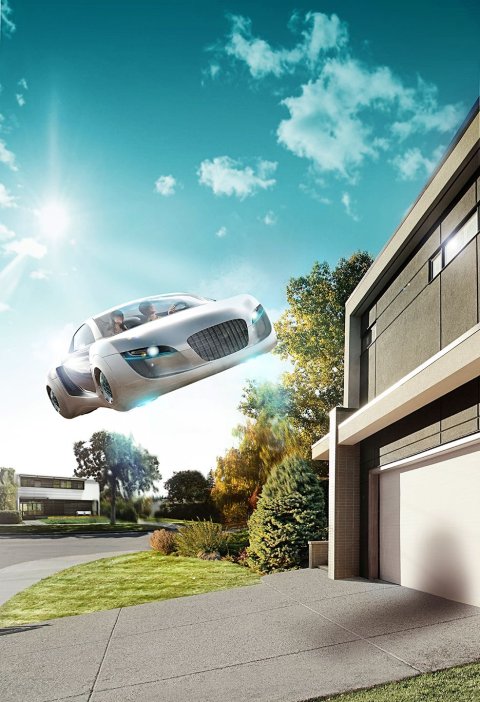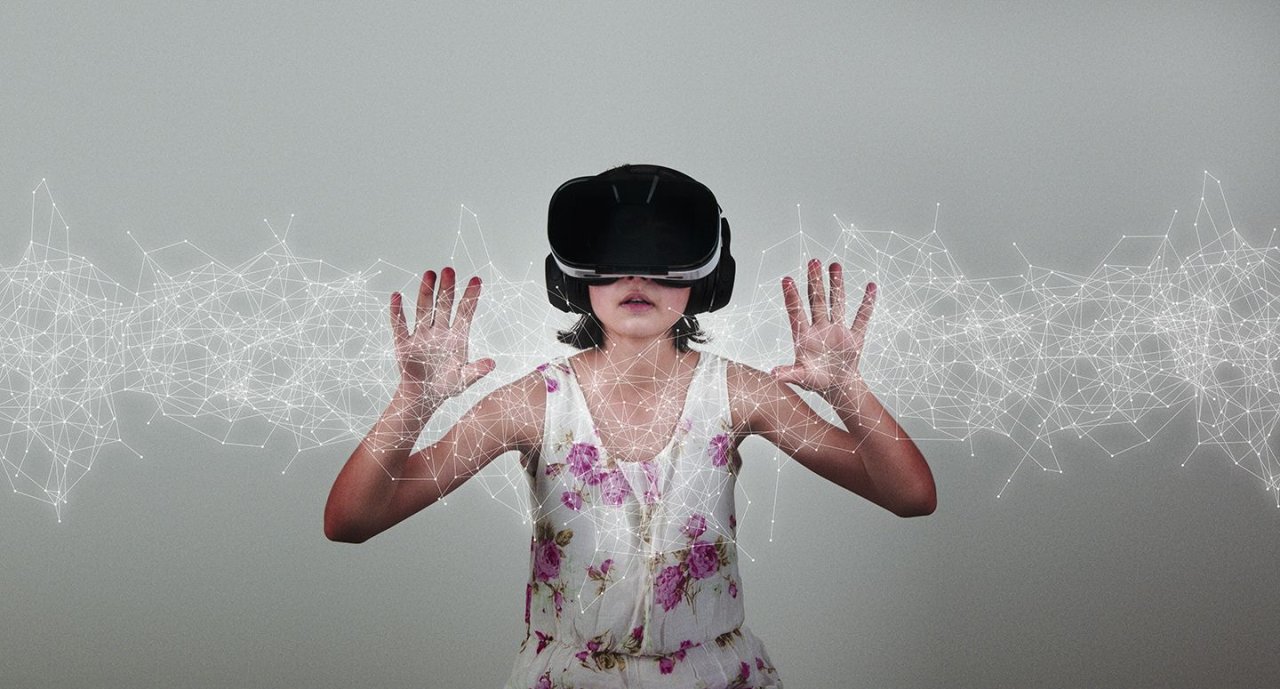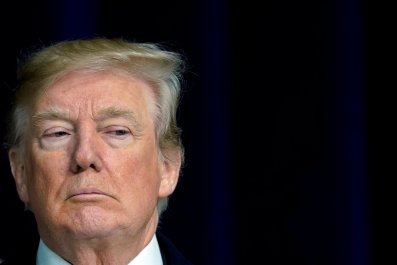In two short years, we'll be a month into 2020, and by then, you'll apparently be able to catch a ride in a flying Uber to a hotel where a robot will check your luggage and the minibar fridge will be much smarter than you. Though the odds are that you'll be depressed and unemployed, which you won't even be able to ease with a couple of martinis, because you'll be taking a pill that makes booze no fun.
But—hooray!—Jeff Bezos will be worth $210 billion.
The year 2020 is a ripe target for predictions. It's a symmetrical round number, makes us think of good eyesight and has a whiff of being far enough away to be in the "future" yet close enough to make projections seem credibly based on fact. Which means that just about every kind of company, industry association, analyst group, government agency and smarty-pants guru is making predictions that start with "By 2020."
We're especially getting a lot of predictions about transportation, since how we move around is poised to change more than at any time since the invention of the airliner. It seems that 2020 is when the whole autonomous car thing will bust out like elementary students from a school at the 3 p.m. bell. Honda promises cars that will drive themselves on highways by 2020. Renault-Nissan vows to introduce 10 different self-driving cars by then. General Motors, Hyundai—basically every car company is in for some level of autonomous driving by 2020. And it's a damn good thing that New York state says it will eliminate toll booths by 2020, because it doesn't seem as if any autonomous cars are going to come with an autonomous arm that can reach out and throw quarters into a basket.
Some of the transportation predictions get really funky. Uber is promising flying taxis—built by Bell Helicopter, which showed off designs at January's Consumer Electronics Show—in Dallas, Los Angeles and the United Arab Emirates' Dubai by 2020. The U.S. military has been aiming to roll out in 2020 a "flying Humvee"—a troop transporter that looks like a minivan topped with helicopter rotors. Toyota in January unveiled plans to build autonomous driving stores by 2020. A retailer could build a little shop in one of these, and it would drive to you, so you could try on a bunch of shoes without having to ship the rejects back to Zappos.
When we travel in 2020, it's likely robots will help us. Hospitality consultant Dean Minett says successful hotels in 2020 will have robot bellboys that check in your bags. "No tipping required," he points out cheerily in a blog post. Already, Yotel New York has such a bot. A survey found that two-thirds of travelers will be "comfortable" with robots checking bags, serving drinks and playing other roles in their vacations. German and French respondents were more likely to hate the idea; 92 percent of Chinese are all for it. Guess who's going to wind up running the coming robot economy?
By 2020, Samsung plans to build artificial intelligence into every device it sells, from smartphones to home appliances. Cisco predicts that by 2020, a $1,000 chip will have the computational power of a human brain. So it's entirely likely that a high-end refrigerator will be able to tutor your kids in the calculus you don't understand.

As you might imagine, personal tech will continue exploding in 2020. Predictions say we'll have automatic language translation on our phones, and there will be four connected devices for every human on Earth. Virtual reality will be a $120 billion annual market…or $38 billion…or $150 billion. Depends on which of the many highly professional forecasts you want to believe.
This personal tech surge will be great for tech giants Apple, Amazon, Google and Facebook, which by 2020 could be big enough to alter the Earth's orbit. Apple CEO Tim Cook set a goal this month of doubling revenue from services like his App Store by 2020. This is a company that already brings in $50 billion every quarter. Some analysts believe Amazon will double in value by 2020. CEO Bezos is already the richest man on the planet, worth about $105 billion. If Amazon doubles, Bezos's wealth will double, bringing him to $210 billion. That's about the gross domestic product of Portugal.
For those of you intrigued by the crazy run-up in digital currencies, there are projections that digital currencies in 2020 will be worth $4 trillion. The problem is that no one knows which digital currencies will be the winners and which ones will be the next Pets.com.
Other fun forecasts for 2020: We'll be able to buy lab-grown meat, Japan will use robots to build an outpost on the moon, and Dubai will run its government on blockchain technology.
Will all these advances add up to good times? Not necessarily. There's a lot of talk of an economic downturn in 2020. AI will be creating more jobs than it kills by 2020, but the new jobs will be for new kinds of skills that most of the people thrown out of their jobs won't have (see: hotel bellhops).
And we might have to endure a Donald Trump vs. Oprah Winfrey presidential race that year, which most of us would welcome about as much as having Roy Moore show up at our daughter's Sweet 16 sleepover. That's why one projection is particularly disheartening. In 2020, you apparently will be able to buy a pill—Arbaclofen placarbil—that kills the buzz from alcohol, allegedly making you want to stop drinking. So if all we are hearing about 2020 comes true, it's obvious why the U.S. marijuana industry is poised to almost triple in size to $8 billion in annual revenue by 2020, as analyst company Arcview Market Research projects. We're going to need some help dealing with the future we're about to create.
















